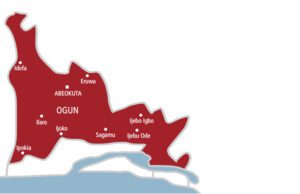
IITA develops seed system approach for improved cassava varieties
By Anu Oyeleye, Ibadan
The International Institute of Tropical Agriculture (IITA), through the Building an Economically Sustainable Integrated Cassava Seed System Phase 2 project (BASICS-II), has developed a seed system approach to provide improved cassava varieties to farmers as the 2022 farming season draws near.
Speaking at a media parley in Oyo State last week, Prof Lateef Sanni, the project manager, said the new model known as the BASICS model, will help Nigeria compete globally and keep the price of cassava-based foods stable and affordable in the country.
Sanni who described cassava as the engine of economic growth and stressed that Nigeria must take advantage of the economic potentials of the root crop.
“Countries like Brazil, China, Thailand, Vietnam, and even Cambodia. These are countries reaping ‘gold’ from cassava. These countries do not record less than 30 tons per hectare. Farmers produce less than 10 tons in Nigeria due to poor performing seeds.
“Our goal in BASICS-II, therefore, is to provide farmers with access to affordable, quality-assured seeds of improved cassava varieties in demand by local food and processor markets through the establishment of a commercially viable seed value chain,” he said.
“We are doing this using the seed system approach called the BASICS model. We are encouraging farmers to adopt new and improved varieties to improve productivity, raise incomes of cassava growers and seed entrepreneurs, enhance gender equity, and contribute to inclusive agricultural transformation.”
In the words of the project’s Advocacy, Promotions and Outreach lead, Dr. Godwin Atser, “we can’t say that we are the largest producer of cassava in the world, and the prices are still very high. That is not acceptable. Therefore, improved varieties are the key to changing that narrative.
“Improved varieties will increase cassava productivity, ensure food security, guarantee processing industries of quality raw materials, keep only quality and disease-free seeds in circulation, and hinder the spread of cassava crop diseases on farms.
“Apart from its economic and sustainability elements, the model also has a job creation component,” he said.
“Today, we have hundreds of farmers across Nigeria and Tanzania engaged in cassava stem multiplication and marketing.
“Currently, the project is creating hundreds of cassava seed entrepreneurs in Benue, Kogi, Abia, Delta, Cross River and Akwa Ibom States. Another project called GIZ funded Cassava & Maize Value Chain Project, which I am leading, has used the BASICS model to establish 60 cassava seed entrepreneurs in Oyo and Ogun states.”
He also explained that the project is strengthening links between cassava root producers, processors and consumers with Early Generation Seed producers within the oversight of the National Agricultural Seed Council (NASC), the country’s seed regulating agency.
He noted that the country currently has two EGS companies – IITA GoSeed, a private company owned by IITA, and Umudike Seed, a private firm owned by the National Root Crops Research Institute (NRCRI), Umudike, Abia state.
Dr Mercy Diebiru-Ojo, a vegetative seed specialist and the General Manager of IITA GoSeed noted that the Early Generation Seed Companies is responsible for multiplying the new varieties developed by the breeders in IITA, NRCRI, NextGen Cassava and other breeding programmes.
She said, “At IITA GoSeed, we use new technologies to multiply the improved varieties and make virus–free stems available to the seed producers who will further multiply and sell to farmers.
“Our Semi Autotrophic Hydroponics (SAH) technology has helped us surmount the slow multiplication challenge we used to have in the past. Now we are multiplying virus-free cassava planting materials at a much faster rate such that within two years of release, the improved planting materials are commercially available.”
The Operations Manager for IITA GoSeed, Akinyemi Ibikunle, also stated that the process of making improved varieties available to farmers is also a very lucrative business opportunity for those interested in cassava seed production.
His words, “As a foundation seed producer using a hectare of land, you need about N745,000 for a cycle of 16 months during which you would get a thousand bundles of cassava stems and about 20 tons minimum of cassava roots. That will give you at least N1.6 million in return. This is one of the seed business opportunities we have at IITA GoSeed.”



